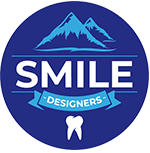Quality Dental Care
Longmont, CO Family & General Dentistry

Benefits You Can Expect From TMJ Treatment
What is TMJ?
The temporomandibular joints, or TMJ, are the joints and jaw muscles you use to open and close your mouth. TMJ are located on each side of the head to work together when you chew, speak or swallow. Muscles, ligaments and the jaw bone itself are all part of TMJ. They move the lower jaw, allowing it to move forward, backward and side to side.
Each TMJ has a disc between the ball and socket that cushions the load while allowing your jaw to open widely, rotate or glide.
TMJ Disorder
The TMJ is a complex system of muscles, ligaments, discs and bones. Anything that prevents them from working smoothly together can result in a TMJ disorder.
TMJ disorders can be very painful. They result from issues such as:
- arthritis
- dislocation
- jaw injury
- tooth and jaw alignment issues
- excessive jaw clenching
- teeth grinding
- stress
At Smile Designers, we are experts at TMJ diagnosis. Our examination includes checking the joints and muscles for tenderness, clicking, popping or difficulty moving. We’ll discuss any injury you may have had, and also check your teeth signs of excessive clenching.
TMJ Treatments
The first steps in treating TMJ usually involves addressing habits that may be aggravating the problem.
TMJ becomes stubborn because the discomfort creates tension in the jaw. That discomfort can cause people to clench or tighten their jaw, exacerbating the tension and pain.
Under these circumstances, we may direct you towards relaxation techniques to control jaw tension, including meditation or biofeedback.
We can also show you some exercises designed to strengthen your jaw muscles which are good for relieving tension. You may also need to eat softer foods and make efforts to avoid biting your nails. We may advise against chewing gum or eating hard candy. Yes, if you love taffy, you’ll need to find a new guilty pleasure.
We also may prescribe medications such as muscle relaxants, analgesics, or anti-inflammatory medications.
In some cases, mental anxiety contributes to TMJ. Relaxation techniques are a start, but we may also refer you to another doctor to see if anti-anxiety drugs would be helpful.
Your TMJ can also result from excessive teeth clenching while you sleep. In this case, we’ll fit you with a dental night guard or bite plate so your teeth can’t grind, which will help relieve jaw tension.
In the most severe cases, we may look into adjusting or reshaping some teeth or consider orthodontic treatment to relieve your TMJ.
If you’re experiencing an inordinate amount of pain in your jaw or you think you’re either clenching at night or doing it subconsciously during the day, schedule an appointment at our Longmont dental clinic right away. We’ll address the issues that are causing your jaw pain then diagnose and treat TMJ as indicated.

